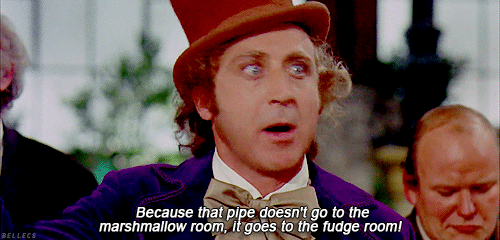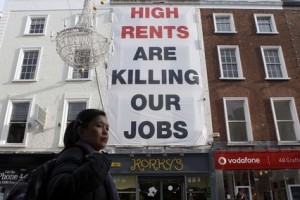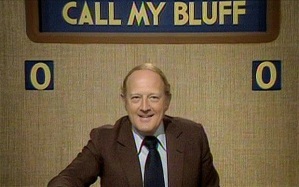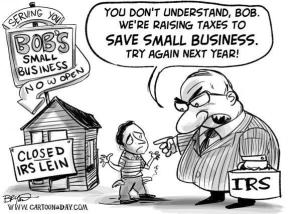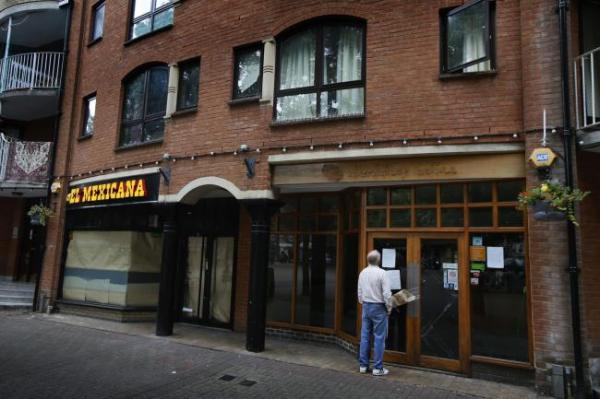
I started my high street retail career in the fine city of Oxford, so it’s a place that’s close to my heart. It’s also a place where I first experienced the damage that can be done to an area by a local authority who not only takes its eye off the ball, they take the ball away and refuse to play nice with the local small business community at all.
We closed our last store where we had opened our first 20 years earlier, almost to the day, in Oxford. It was a sad time for us, made ever more sad by a final tussle with the City Council who had refused us a change of use on the property so that we could finally sell the lease to the only people that wanted it – A Bureau de Change. They finally relented hours before we were about to call the administrators in.
Not a great end to our Oxford experience, but one that had been marred over the previous 20 years by repeated mismanagement and lack of consideration for the high street.
From a dreadfully thought out one way system, to road works that took over a year to complete and decimated trade for years afterwards, to increasingly hiked, eye-watering parking charges, the city council couldn’t have more effectively shown my business, and many others, the door if they’d tried.
Eventually, after years of depleted useful footfall, and with a new shopping centre that we all knew was going to decimate the traditional retail areas in the city on the horizon, we finally took the hint and left.
Many other small stores and restaurants have followed suit since, and one of the more recent ones – Combibos Coffee – in Gloucester Green made their feelings clear in a newspaper article in the local press, where the owners levied the criticism that the city had “lost it’s sparkle”.
Read the original Oxford Mail Article Here
This chimed with me, not only because, as a jeweller, I think we once provided some of that sparkle, but also because as it mirrored my experience in dealing with the council a few years earlier. My business had also applied for rates relief before we ultimately gave up on the city where we’d begun our high street adventure. We were knocked back unceremoniously for our troubles.
The response to this article from the city council seemed to me to support my view, and that of many others in the local community, that they had not grasped the severity of problems in Oxford, particularly for smaller businesses, and were instead trying to wave away such criticism by making bland comments about supporting local businesses.
Moreover the councillor most closely concerned – Mary Clarkson – seemed to be suggesting the council were offering direct support for smaller businesses in the form of targeted business rates relief.
Intrigued by this claim I made a FOI request asking how many micro-businesses – nationally defined as operations employing 9 people or less – had the council given rates relief to outside of the normal concessions applied on a national basis as part of the new powers granted to local councils in the 2011 Localism Act.
The answer was virtually none. The only rates relief given as a result of local initiatives came to approximately £40k and this was only to a group of businesses very narrowly defined by the council as operating as if they were charities.
The council made a subsequent claim to the local media that they had in fact given £31m of relief to businesses. Closer examination of this claim revealed that they had included all the statutory government mandated relief schemes in that figure. These included such things as transitional relief and charity relief. As most of us will know, these are simple bolt on measures brought in by the government over many years, intended to reduce the business rates burden, instead of carrying out the root and branch review that everyone, including central government, knows is required.
My concern was that Oxford City Council, in attempting to obfuscate the fact that they have not provided any additional support, were undermining the argument that business rates do need a fundamental rethink.
I know that councils are cash-strapped by government cuts, so expecting them to provide support unaided is probably a tall order. But in not making that point, and instead relying on empty cut and paste phrases, the council are missing an opportunity to engage with both the government and the business community on the issue. I have to say that, for a Labour led city council, I find that doubly surprising and disappointing.
As the old truism goes, you can’t deal with a problem if you deny that there is one in the first place.
Unfortunately much of the local media have slightly missed this point and instead focussed on my criticism of the city as a “scruffy clone town”. I think it’s arguable that it is, and that the reason for that is connected to the council’s apparent lack of support for smaller businesses that provide the diversity and distinctiveness that avoids towns and cities being described as such. Their recent comments are really only a further indication of this.
I tried to correct this shift of focus in a radio interview I gave on Friday about the local press articles. Sadly the council didn’t put anyone up to discuss the issue more fully, they will apparently be issuing a fuller statement in due course and I’m waiting with baited breath for that! In the meantime, as you can hear in the interview they are relying on their claim to support local businesses using the same ‘cut and paste’ answers I accused them of in my letter.
For those who are interested I’ve added the full text of my open letter below. At the time of writing I’ve received no response from the council or Councillor Clarkson.
Councillor Mary Clarkson
Oxford City Council18 August 2018
Dear Councillor Clarkson
I read with interest your comments in the Oxford Mail some weeks ago in an article entitled ‘Council hits back at coffee shop claims Oxford has ‘lost its sparkle’ (Oxford Mail 14th June 2018). This was in response to claims by a local coffee bar, Combibos Coffee, and some other small businesses in the city that Oxford had lost its appeal to consumers and that the council was not supportive towards smaller businesses, specifically those classed nationally as ‘micro businesses’ employing 9 people or less.
In the article you rebuffed claims that the council had not done enough to support such businesses in the city. Amongst a number of rather glib statements focussing on broad indicators such as footfall and changes to the high street you made the following statement :
“Business rates are set by central government; the city council provides business rate relief to many small businesses”
Whilst I’d not dispute that business rates are indeed set by central government, the second part of your claim surprised me. It suggested that the city council has provided specific relief to smaller businesses in Oxford over and above those it is mandated to provide by central government. I assumed you were referring to powers available to local councils under Localism Act 2011 that gave them the discretion to apply rates relief where required.
As a former trader in the city of over 20 years standing, I’d applied myself to the council for help on business rates around 2013 when my store in Cornmarket was suffering as a result of many factors in the city that were arguably caused by the city council. My business was refused support out of hand at the time, so I was intrigued to find out what help you may have provided to others in a similar situation as you appeared to be claiming in the Oxford Mail.
As well as being a retailer myself, I’m also a commentator and journalist on retail matters in the national and business press. Many of the problems I highlighted to the council 5 years ago were repeated by Combibos Coffee in the Oxford Mail article you responded to. These included poor management of shared public spaces, high parking charges, lack of easy access to the city centre and a disproportionate focus on larger chain stores in the city centre.
The latter problem has now been massively compounded by the opening of the Westgate Centre which itself is only partially let and has largely cannibalised traders from elsewhere in the city, leaving large holes in the main trading streets. There appear to have been no contingency plans laid to deal with the devastating effects of this development on other businesses in the city, especially smaller operators, not least in the Covered Market which is losing ground and tenants faster than even the most pessimistic observers predicted.
The response from the council has been one of apparent lack of concern and in many cases an evident lack of understanding of how the commercial property market operates. Your colleague and former leader Bob Price was regularly heard to claim that more empty shops would lead to a reduction in rental values. Sadly that is not the case for reasons too complicated to detail here. It’s a shame that he, and it appears you, are not better informed on such matters.
As a result of your claims in The Oxford Mail, I made a FOI request asking for details of how the city council had provided business rates relief to “many small businesses”. The response to that request and subsequent clarification you provided to the Oxford Mail demonstrates that little has changed in the council’s approach since my days as a city trader.
Although the city council apparently have no records of how many businesses apply for discretionary relief, you were able to confirm that none had been offered such relief in the preceding 2 years. I was told that micro businesses “would not normally qualify for Discretionary Relief in the Oxford City Area”. So the facts seem to run contrary to your claims.
You do apparently offer some relief, but only to a very narrowly defined group of businesses which “act like a charity, but do not have charitable status”. Even then, you have only provided this to an average of 8 businesses a year and currently provide it to 6. I doubt that would fit any reasonable definition of “many small businesses” as you have claimed. The only other form of locally administered relief is hardship relief, for businesses in temporary difficulties. According to your own figures you haven’t provided this to anyone. Again, hardly a figure anyone would reasonably describe as “many”.
Your further response to the Oxford Mail did however provide a long list of other business rates rebates and discounts. These included Mandatory (Charitable) Relief, Small Business Rate Relief, Transitional Relief, Empty Property Relief, Rural Relief, Public House Relief, Supporting Small Business, Local Discretionary Revaluation Relief and Local Newspaper Relief.
To the uninitiated this sounds like an impressive list, but as I assume you know, these are all government mandated schemes imposed and essentially funded by central government. None of them are initiatives created or provided by Oxford City Council as you implied in the article on 14th June. The council has no choice, no say, and does not directly contribute financially in the application of these rebates. These are not optional or locally created schemes and so it’s misleading and disingenuous for the council to claim credit for them.
Contrary to your claims, essentially no direct support exists for small local businesses in Oxford similar to Combibos Coffee to offset the unique problems in the city centre, many of which have been created by your administration. It follows then that your comments in the newspaper and the assertions your department have made since are at best confused and at worst factually incorrect and misleading.
I am aware from my own experience that the council takes the view that discretionary support should only be offered when it returns a direct benefit to the city and I can to some extent understand that. I also understand that all local authorities are under immense financial pressure as a result of central government cuts, and very few if any have given rates relief on a purely discretionary basis. But ignoring this fact and the associated pressures on local businesses and making misleading claims about local business rates concessions does not properly highlight this plight. Neither does it help the national debate on the inequities of the business rates system.
The underuse of discretionary powers also overlooks the value of the amenity provided by such businesses, not to mention the employment and direct contributions they make in the form of local taxation prior to running into such difficulties. I would also assert that there is a responsibility on you as a council, especially an allegedly socialist led council, to ensure that smaller businesses who are simply looking to make a reasonable living are able to do so, especially when they are providing valuable employment to people in the city. Yes they are still private enterprises, but their continued success has many knock-on benefits for the city.
These are usually owner-operated outlets working hard against ever diminishing odds to simply stay afloat. They are not in the same league as the large well-financed corporate operations your council seems to favour, particularly those likely to be attracted to the new shopping centre, itself a development instigated and operated by large wealthy conglomerates.
It’s also noteworthy that, unlike many other councils considering such developments within their purview, you did not impose any requirements on the developers to provide smaller, subsidised units for independent operators other than the usual ubiquitous RMUs. But considering you didn’t deem it worthy of ensuring the housing element of the development would be affordable for key workers, I suppose this is hardly surprising.
I have to say that I agree with the original assertion by Combibos Coffee that Oxford has “lost its sparkle”. Having traded in the city since the early 90s I’ve seen it go from a vibrant, destination location to a scruffy, poorly managed, clone town, trading on its past glories. Over the past 10 years it’s essentially been allowed to go feral by a council who seems to have no concept of how an historic city should be nurtured, shaped and supported.
I was very sad to have to close both my stores in the Oxford after 20 years commitment to the city and it saddens me even more to see other small businesses being forced out in the same way. It’s little wonder that so many of them are collapsing, if your response to such events is careless platitudes and specious claims.
It’s a truism that you have to recognise there is a problem before you can find the solution. That solution is not issuing blanket media statements with claims that do not bear closer scrutiny. So I would ask that you at least be honest with the business community and the wider public and admit that as a council you have no schemes in place that support small local enterprise and perhaps consider setting some up.
Oxford could be a special place again given the right local political will, but from your repeated cut and paste answers it seems that will is not there. Neither is there any tangible support for struggling small businesses, despite your claims to the contrary.
I’m happy to discuss these matters in more detail if you think that would be useful. In any event I look forward to hearing your thoughts and seeing an honest clarification of the position of the council on discretionary business rates relief in the near future.



 My personal preference is for a system of local purchase tax, similar to what we see in many US stores. But I know I’m in a minority in favouring that. Indeed the very idea was discounted early on in discussions over reform last year.
My personal preference is for a system of local purchase tax, similar to what we see in many US stores. But I know I’m in a minority in favouring that. Indeed the very idea was discounted early on in discussions over reform last year.

 I have to admit to some bemusement at the recent
I have to admit to some bemusement at the recent  Most notable amongst these is
Most notable amongst these is 
